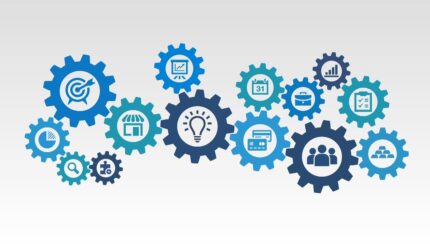The final chapter from our ‘Guide to Building Resilience’
Wallet Share versus Market Share
One often-overlooked aspect of the modern business world is that chasing market share can mean running around in circles and getting nowhere fast. While some businesses put all their stock in capturing market share, many of them wind up losing their share of profits in the process. The conventional paradigm is that companies are in business to buy products and resell them to customers. But looking at this idea from a different point of view may help clarify the essence of market share and how it relates to pure profitability.
Switch the idea around and view the goal of the company as buying not products, but customers. In reality, every company has to pay to attract customers through marketing and advertising, and by looking at it from this different perspective it is easier to see that. Rather than chasing market share, businesses are chasing “wallet share” or profit. After having invested so much to earn the loyalty of a customer, it is critical to focus on getting a solid return on that investment. In other words, once a company has customers, it needs to take full advantage of the opportunity that each customer represents.
Building Upon Success to Grow Profits in Any Cycle
Lots of business owners exhaust both themselves and their resources trying to increase sales, only to wind up with smaller profits at the end of the day. Profit is the king in any business, and those who lose sight of that fact suffer, especially when profits get pinched by a recession or industry slowdown. Don’t counteract a downturn by expending more wasteful energy. Instead, put it where it really pays off the most. That means increasing the conversion rate, the number of transactions, and the margins of each sale. Using your resources more effectively will go a lot further in increasing your profit margins than merely tossing time and energy at the problem.
Generate more leads by doing more advertising, getting more exposure through publicity, and by targeting those who are the best potential customers. Use referral incentives, because an existing client who advocates on behalf of a business is the best advertiser of all. Then concentrate on converting those leads into paying customers by offering better products and superior customer service. People still spend money when times aren’t good, but they are more careful to pay for value and get their money’s worth. By offering that kind of quality, a business will succeed and grow stronger, not weaker, during downward economic cycles.
Meantime, focusing on margins by spending wisely and running an efficient and goal- oriented business will feed profits and strengthen the bottom line.
Cash is King in a Recession
They say that “cash is king during a recession,” and many of the great business success stories tell of companies that expanded and grew because they made lucrative investments during hard economic times. NationsBank – now Bank of America – bought one of the largest banks in the nation at a bargain basement price during the banking recession of the 1980s. By doing so, it transformed itself from a substantial regional player into one of the top three financial institutions in the USA.
But it was able to make that strategic acquisition because it had cash on hand to spend and invest, while other banks were struggling to maintain operating capital. Buying low and sell high requires purchasing and acquiring while others are selling and unloading, and businesses that are recession-proofed can do so to emerge from an economic downturn even more energised and poised for profitability.
The key to taking advantage of the “cash is king” maxim is to first and foremost understand that “profit is king” in business. Focus on profitability, and every other aspect of a business will essentially take care of itself as the business model lines up accordingly. In good times and bad, businesses that follow superior plans and models grow – and so do their profits.
This blog post is part of our ActionCOACH guide ‘Building Resilience’ that can be downloaded here





